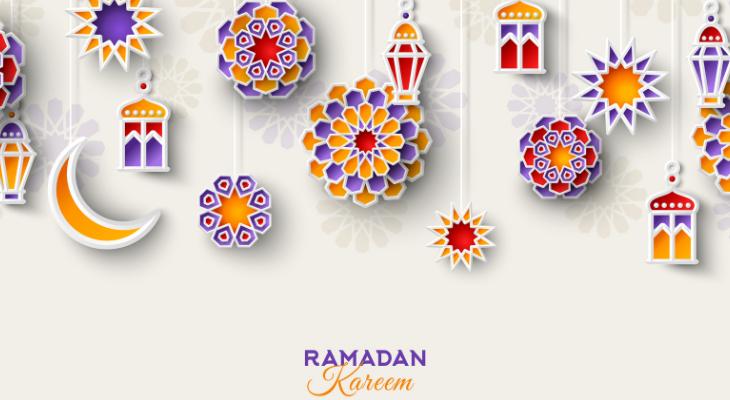Running Thread: Ramadan and All of Us
April 12, 2021

As a child visiting her in Cairo, I would see my illiterate paternal grandmother kiss her Bible and place it gently on the most elevated shelf or table in the room. When he visited us stateside, I’d witness my maternal grandfather turning eastward – toward Jerusalem – in prayer. As I came to know Islam more deeply, I came to see the resonances between these Arab Christian practices and the great Islamic tradition. My grandmother was clearly influenced by the veneration of the Qur’an she saw in her Muslim neighbors. My grandfather’s turning toward Jerusalem was influenced by the qibla, or Islamic practice of turning to Mecca.
It’s hard to miss the almost perfect overlap in timing this spring of Passover, Easter, Holi, and the onset of Ramadan. Harder still to be unmoved by the refraction of reinforcing themes throughout these holy days: life over death, liberation over oppression, forgiveness, and reconciliation, and focused devotion to that which matters most.
Ramadan, the holiest month of the Islamic calendar commemorating Muhammad’s reception of the Qur’an, begins on Monday. Observing Muslims worldwide will fast during daylight as a discipline of spiritual purification, to viscerally remember the suffering of those in need, and to recenter on the ultimate dependence on God. Fasting for Ramadan is one of Sunni Islam’s five pillars, foundational of the faith and obligatory for those who are able.
I have come to revere the spiritual disciplines inherent in the practice of Ramadan. The focus and awareness fasting brings; the poignant grip of utter dependence on God; the paring down of all that is extraneous in an embrace of the essential. During Ramadan, I am reminded of the allure of the Islamic aesthetic, in all of its varieties, but most of all the sound of the Arabic language and its visual beauty. Take this, for example, from Surah 2 (Al-Baqarah), Ayah 183, decreeing fasting as a way to become more righteous.
Share
Related Articles
American Civic Life
Racial Equity
Immigrant Faith Communities On Rooting Out Anti-Black Racism
American Civic Life
We Commemorate, We Commit: Out of Catastrophe, a Conversation on Connection and Repair
In the Coptic Orthodox tradition of my ancestry, fasting is encouraged throughout Lent, the 40-day period preceding Easter Sunday. While approached differently than fasting for Ramadan, it is considered spiritually honorable to withhold from any food or drink from daybreak to as long as one is able. Many of the older generations in my family would break their Lenten fast at 3 pm or 6 pm while maintaining veganism throughout the period. This week, my own devotions continue in “Eastertide,” celebrating Jesus’ resurrection for a period of fifty days commencing with Easter Sunday – and I’m grateful for my own Eastertide’s coincidence with Ramadan. My friends and family observing Orthodox Easter this year find themselves in Lent now, an even stronger thematic concurrence with the sawm (Ramadan fast). I find myself longing for a gently celebratory evening iftar meal with my Muslim friends, much in the way I longed for shared Hamantaschen over Purim with my Jewish friends. The food itself is wonderful and serves as the culinary vehicle for interfaith friendship.
That might just be possible near the tail end of Ramadan, as more of us cross into stronger immunity from Covid. Many still have our guard up, and rightfully so. Dr. Nour Akhras, a pediatric infectious diseases physician, was far ahead of the curve in urging caution of her Muslim friends and family in the early days of the pandemic. She writes of how she considers vaccination, like fasting for Ramadan, to be obligatory.
If there are no contraindications specified by your physician to get vaccinated, it is my belief that as Muslims, we are obligated to get vaccinated just as I believe it is our obligation to wear a mask, wash our hands frequently and practice social distancing during this pandemic.
“In a dark time, the eye begins to see,” as the poet Theodore Roethke reminds us. These challenging times have brought us closer to seeing what is most essential. Through the travails of the pandemic over the last 13 months, we have come to a place where so many of our traditions refocus us and beckon life once more. As seminaries open their doors as vaccination sites, as mosques cautiously open their doors this Ramadan, and as families celebrate Eastertide with the children growing in the faith, life abounds.
More than ever before, this year I am sensitive to the interlocking themes, the spiritual disciplines, and the sheer beauty running through our traditions. They point us toward building a common life together, in which we may all once more feast.



